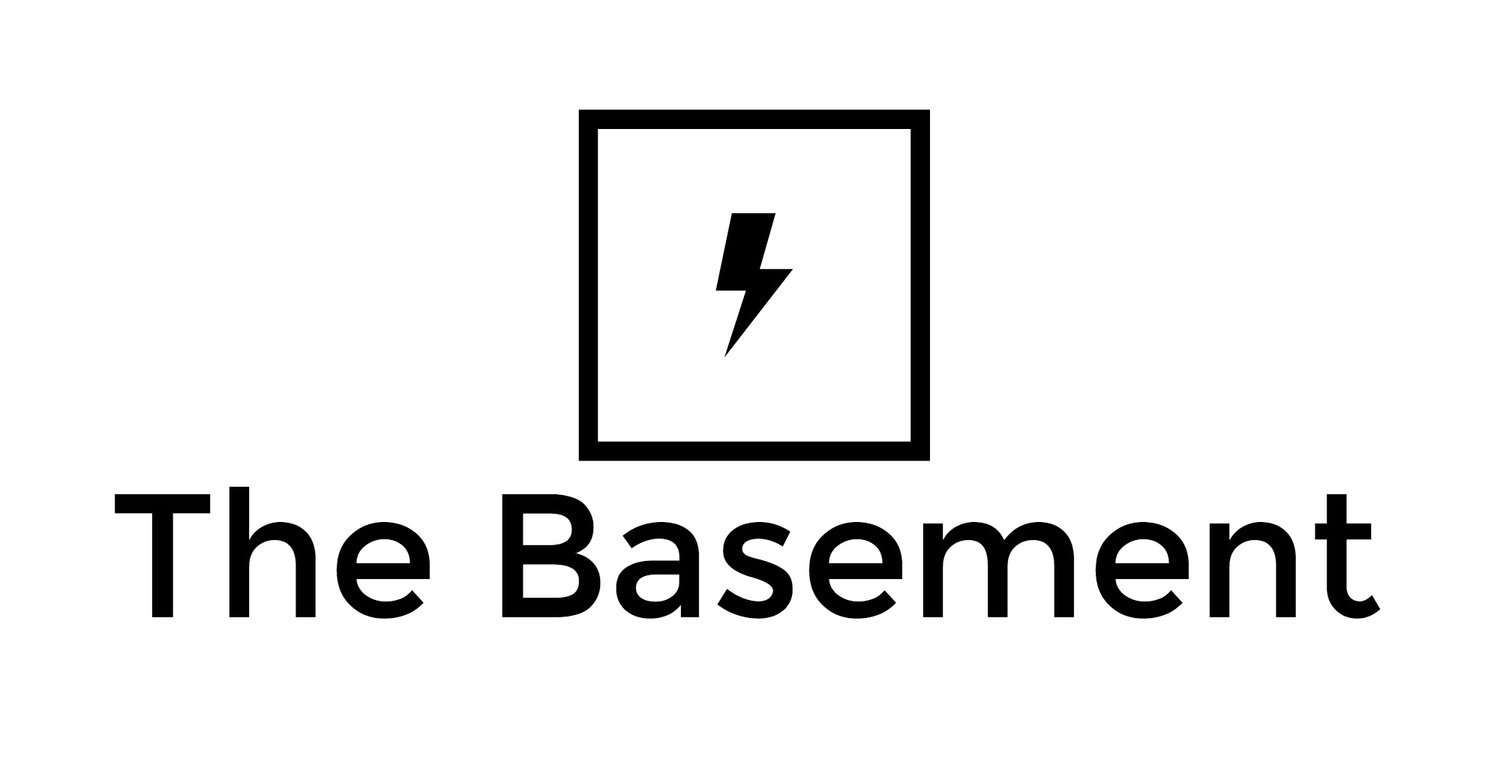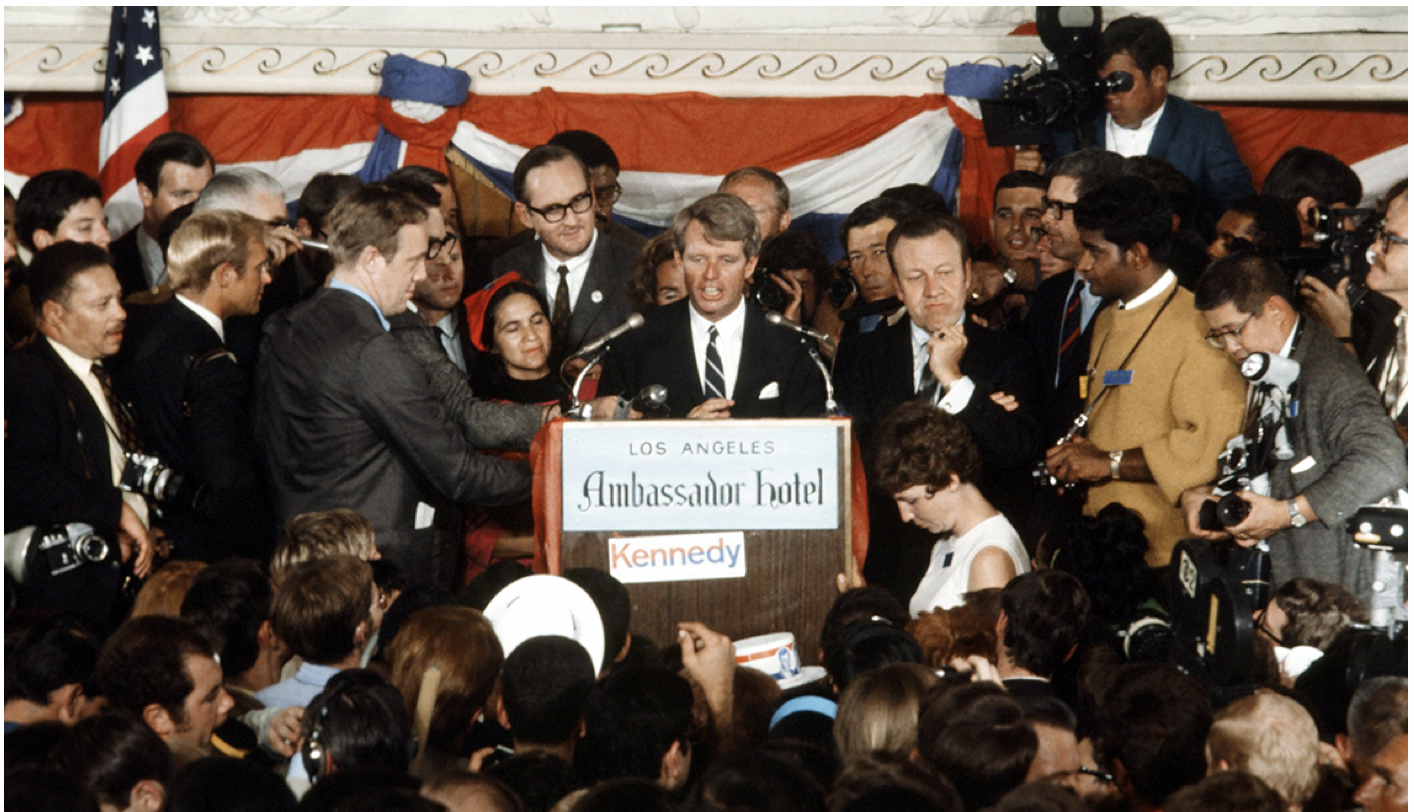The Last Night of Bobby
This is the ABC reporting of the evening of the 1968 California Democratic primary, as Robert Kennedy takes the stage for his victory speech. Bobby was always news, from the time he took over as his brother John’s campaign manager, to his stint as Attorney General, his public grief and mourning of his brother’s assassination, to his run for the senate from NY. Now he was running what seemed to be the first jazz campaign for the presidency; riffing, playing the crowds, surging in the states and in popularity. Now he racked up his biggest victory, the California primary. After a humiliating defeat in Oregon, Robert Kennedy was back on top with Chicago, the Democratic Convention, and the nomination within grasp. He was exhausted, bone tired, his hands sore from shaking, his feet and shins hurting from standing in convertibles, held in place by football player Rosie Greer while voters grabbed at him as he shook their hands. He probably lost a dozen pairs of cufflinks during his campaigning.
Bobby hadn’t wanted to go into LA that night. He was tired and staying at the beach house of his friend, director John Frankenheimer. Frankenheimer convinced him that he should go in if only to say ‘thanks’ to the campaign staff. Kennedy reluctantly put on a suit and Frankenheimer drove him into LA, to the Ambassador.
Frankenheimer would never forgive himself.
ABC that night was doing its usual talking heads coverage, being very dignified about it, killing time while waiting for Bobby to come to the ballroom of the Ambassador Hotel to make a victory speech and thank his supporters and campaign volunteers. Their floor reporter in the room had been talking to supporters before the speech and was standing by in case the network anchor, threw it back to him for any final thoughts as Senator Kennedy finished his speech.
As Bobby leaves the stage, ABC cuts back to the studio for the Howard K. Smith wrap-up. Towards the end of Smith's talk, you can hear people starting to yell about something. Under the logo, theme, and announcer voiceover, Smith takes off his mic and the credits roll. Suddenly Smith jabs the mic back on his tie, straightens his jacket, picking up the phone several times. The announcer comes back on, asking people to hold on, as they have breaking news. After what seems like an eternity (with several repeats of the theme) Howard K. Smith breaks the news that Robert Kennedy has been shot. Then they cut back to the ballroom Kennedy had left minutes before, people crying, wandering aimlessly, and a disembodied voice describing what was happening as Bobby lay on the ground (off camera) and being lifted out to an ambulance. After a few minutes, they cut to Dave Jane, an ABC producer, and reporter, barely holding himself together, at the scene of the shooting.
The film is the whole evening, how the story unfolded. ABC was also covering the fact that one of their directors was also shot, and the worry and concern are palpable. Frank Reynolds joins Smith and they try to talk about the election results, but neither sees the point of it. Reynolds later covered the attempt on Ronald Reagan's life, as history repeated itself. Again. Reynolds ends the coverage with a long sigh and a stab at an understanding of the horror he had just spent hours talking about. He had little, except that we live in a country where this violence can happen, and can keep happening.
ABC ends before the announcement of Kennedy's death because they need to go back to their regular programming, and show the commercials that had already been paid for.
Kennedy would be officially pronounced dead at 1:44 AM. LA time.
1968 was a horrible year.

